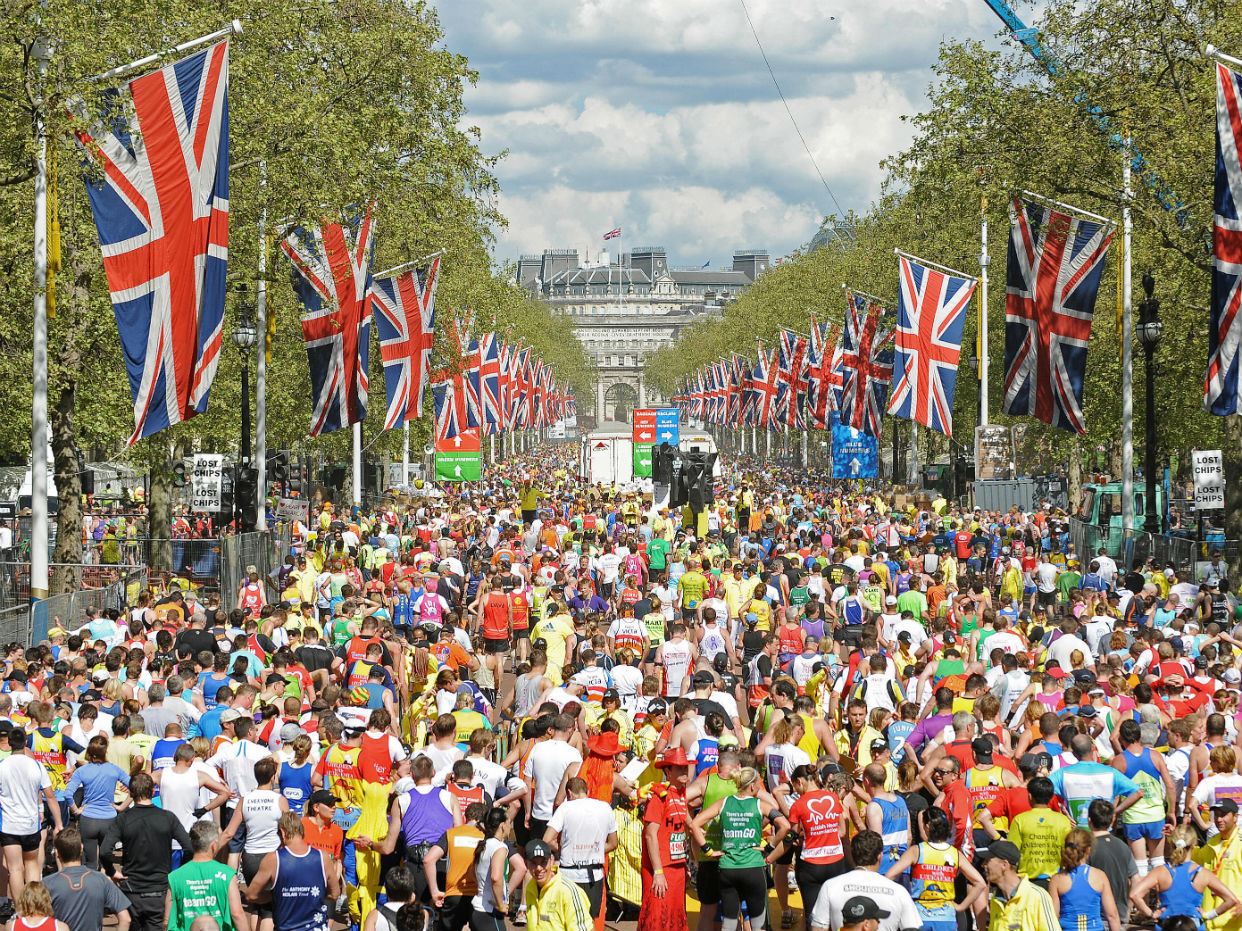The best diet plan for marathon training
Complex carbohydrates and simple diet changes could be the secret to setting your personal best

A free daily email with the biggest news stories of the day – and the best features from TheWeek.com
You are now subscribed
Your newsletter sign-up was successful
With marathon season just around the corner, many people are starting to prepare to slog their way through 26.2 miles in races everywhere from London to Athens. Here are some diet tips from leading experts on the best ways to prepare:
Diet changes
Tim Lawson, director and founder of sports nutrition brand Secret Training, said that the science of distance running nutrition is not necessarily as complicated as you might imagine - just altering your diet to be more healthy can get you closer to being marathon-ready.
The Week
Escape your echo chamber. Get the facts behind the news, plus analysis from multiple perspectives.

Sign up for The Week's Free Newsletters
From our morning news briefing to a weekly Good News Newsletter, get the best of The Week delivered directly to your inbox.
From our morning news briefing to a weekly Good News Newsletter, get the best of The Week delivered directly to your inbox.
“The general advice is no different than what is recommended for a regular healthy diet,” Lawson told Coach. “Less alcohol, lots of greens, oily fish and quality protein foods evenly spaced through the day, with sufficient fluids.”
Focus on carbohydrates - but only the right kind
As runners start training for longer and longer runs, their calorie intake needs to increase as well. A training diet should be at least 55% carbohydrate during daily training and 55% to 65% before an endurance event or long training run, according to registered dietitian Janice H. Dada in Today's Dietitian.
Try to include complex carbohydrates in your diet plan, such as wholegrain bread and pasta, brown rice and legumes. Avoid simple carbs like honey, sugar and jam.
A free daily email with the biggest news stories of the day – and the best features from TheWeek.com
Fuelling for runs
ITCA-certified triathlon coach Michelle Portalatin told Shape magazine that runners should eat a light, energising snack or small meal one to two hours before they go for a training run.
For the rest of the day Shawn Hueglin, a sports dietitian and physiologist, advised runners to eat small meals every three to four hours to maintain energy. He suggests “evaluating how much I've eaten, if I'm truly hungry and not just rewarding myself for a training session well-done”.
-
 Local elections 2026: where are they and who is expected to win?
Local elections 2026: where are they and who is expected to win?The Explainer Labour is braced for heavy losses and U-turn on postponing some council elections hasn’t helped the party’s prospects
-
 6 of the world’s most accessible destinations
6 of the world’s most accessible destinationsThe Week Recommends Experience all of Berlin, Singapore and Sydney
-
 How the FCC’s ‘equal time’ rule works
How the FCC’s ‘equal time’ rule worksIn the Spotlight The law is at the heart of the Colbert-CBS conflict
-
 Home Office worker accused of spiking mistress’s drink with abortion drug
Home Office worker accused of spiking mistress’s drink with abortion drugSpeed Read Darren Burke had failed to convince his girlfriend to terminate pregnancy
-
 In hock to Moscow: exploring Germany’s woeful energy policy
In hock to Moscow: exploring Germany’s woeful energy policySpeed Read Don’t expect Berlin to wean itself off Russian gas any time soon
-
 Were Covid restrictions dropped too soon?
Were Covid restrictions dropped too soon?Speed Read ‘Living with Covid’ is already proving problematic – just look at the travel chaos this week
-
 Inclusive Britain: a new strategy for tackling racism in the UK
Inclusive Britain: a new strategy for tackling racism in the UKSpeed Read Government has revealed action plan setting out 74 steps that ministers will take
-
 Sandy Hook families vs. Remington: a small victory over the gunmakers
Sandy Hook families vs. Remington: a small victory over the gunmakersSpeed Read Last week the families settled a lawsuit for $73m against the manufacturer
-
 Farmers vs. walkers: the battle over ‘Britain’s green and pleasant land’
Farmers vs. walkers: the battle over ‘Britain’s green and pleasant land’Speed Read Updated Countryside Code tells farmers: ‘be nice, say hello, share the space’
-
 Motherhood: why are we putting it off?
Motherhood: why are we putting it off?Speed Read Stats show around 50% of women in England and Wales now don’t have children by 30
-
 Anti-Semitism in America: a case of double standards?
Anti-Semitism in America: a case of double standards?Speed Read Officials were strikingly reluctant to link Texas synagogue attack to anti-Semitism